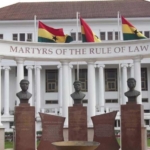
Transportation is a vital cornerstone of any thriving economy, underpinning growth, integration, and daily life. In Ghana, road transport stands out as the principal mode of movement, playing an indispensable role in socio-economic development. It links bustling urban centres with remote rural communities and connects major commercial hubs, ensuring the lifeblood of commerce, social interaction, and access to essential services courses throughout the nation.
The overwhelming reliance on road transport in Ghana is no accident. The rail network is limited and largely underdeveloped, while air travel remains inaccessible to the vast majority due to cost and limited routes. As a result, most Ghanaians turn to the extensive road network for their daily commuting, trade, and travel. This network is not just about convenience; it supports the flow of agricultural produce from farms to markets, enables businesses to run efficiently, and ensures people reach jobs, healthcare, and schools. Perhaps most importantly, it acts as a unifying force, bridging the country’s geographical divides and fostering social cohesion.
However, beneath this seemingly robust system lies a more challenging reality. Ghana currently boasts an estimated 3.6 million registered vehicles, but this figure is misleading. A significant proportion is made up of second-hand, ageing, or even redundant vehicles left idle in garages, at homes, or at workplaces. The 3.6 million includes not only passenger cars but also cargo trucks, heavy machinery, and other non-passenger vehicles, many of which are unfit for transporting people.
Let’s put this in perspective: with a population now exceeding 33 million, even if every registered vehicle were assigned to a different Ghanaian, almost 30 million people would still be left without access to a vehicle. In practice, this means that the average car would need to carry at least nine passengers at a time to serve the whole population—an unrealistic scenario, given that most cars on the road are four-seaters. In fact, for every two households in Ghana (with an average household size of four), there should be at least one passenger vehicle. But the reality is even starker: less than half of registered vehicles are commercially and actively available for carrying passengers, and many are simply not roadworthy, which deepens the crisis of accessibility and mobility.
This situation is even more pronounced in Ghana’s rapidly growing cities such as Accra, Tema, Kumasi, and Tamale. Every weekday morning, between 04:00 and 09:00, and again during the evening rush hour, thousands of commuters crowd bus stops, stations, and junctions, desperate for public transport. The resulting anxiety, frustration, and fatigue are all too familiar. Queuing systems at some stations bring a semblance of order, but rarely alleviate the underlying chaos.
Inter-city travel in Ghana presents its own set of unique challenges, adding to the stress already experienced by commuters. Long-distance buses and coaches are often over-relied on, with journeys frequently delayed due to poor road conditions, unexpected breakdowns, or extensive traffic bottlenecks at busy junctions and tollbooths. Passengers are often forced to wait for hours as vehicles fill up, and unpredictable departure times disrupt personal schedules and business activities. Moreover, the lack of well-maintained rest stops and basic passenger amenities along major routes only compounds the discomfort faced by travellers moving between cities.
At both intra and inter-city, most passengers depend on the ubiquitous “trotro” minibuses, but these vehicles are often poorly maintained, with little attention paid to professionalism, safety, or environmental standards. Overcrowding, sporadic schedules, and a lack of reliable information compound commuter woes. These challenges have pushed many urban middle-class residents to purchase their own vehicles, fuelling a surge in demand for smaller, lower-budget and second-hand cars. Ironically, as more cars join the roads, traffic congestion escalates, air and noise pollution worsen, and the city’s infrastructure buckles under the strain.
Traffic congestion is not just an inconvenience—it has real economic and health implications. Time wasted in traffic reduces productivity, increases fuel consumption, and heightens exposure to air pollution, with knock-on effects for public health and quality of life. Studies have shown that Ghana loses millions of cedis annually to traffic delays, while air quality in urban centres continues to deteriorate, contributing to respiratory illnesses and reducing life expectancy.
Despite these issues, the solution is not simply more cars. Instead, the focus must shift towards developing a modern, efficient, and reliable public transport system. Investments in high-capacity buses, improved scheduling, and better infrastructure could drastically reduce one-passenger driving habits, ease congestion, and make public transport a more attractive option for all. Additionally, embracing digital technology for ticketing, real-time tracking, and route planning could revolutionise the everyday commuting experience.
While road transport remains the backbone of Ghana’s economy and daily life, the current system is under severe pressure. Addressing these challenges requires bold policy decisions, sustained investment, and a cultural shift towards shared, sustainable mobility. Only then can Ghana’s transport system truly support its economic ambitions and improve the quality of life for all its citizens.
- President Commissions 36.5 Million Dollars Hospital In The Tain District
- You Will Not Go Free For Killing An Hard Working MP – Akufo-Addo To MP’s Killer
- I Will Lead You To Victory – Ato Forson Assures NDC Supporters
Visit Our Social Media for More




